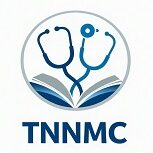Becoming a postpartum nurse requires specialized training and a deep understanding of the physical and emotional needs of new mothers. While the job can be demanding, it is also immensely rewarding. Here are four steps to becoming a postpartum nurse:
1. Obtain a degree in nursing from an accredited institution. This will provide you with the necessary knowledge and skills to care for new mothers and their babies.
2. Complete a postpartum nurse certification program. This will give you the opportunity to learn about the unique challenges that postpartum women face and how to best support them during this vulnerable time.
3. Gain experience working with postpartum women in a clinical setting. This will help you build your knowledge and confidence as you care for new mothers and their babies.
4. Stay up-to-date on the latest developments in postpartum care. This will ensure that you are able to provide the highest quality of care for your patients.
Postpartum Nurse
How Long to Become
2-4 years
Job Outlook
Degree Required
ADN or BSN
For all RNs
Most people are familiar with the role of a nurse in a hospital setting. But there are many different types of nurses, each with their own area of expertise. Postpartum nurses care for mothers and infants from after birth until they are discharged from the hospital. Some postpartum nurses also provide homecare, especially for at-risk cases. They play a vital role in not just making sure that the mother and baby are healthy, but in helping prepare the family to take care of their newborn.
Becoming a postpartum nurse requires completing an accredited nursing program and passing the NCLEX exam. There is also some specific training that is required for this specialty. Postpartum nurses can earn a competitive salary, with the average hourly wage ranging from $25-$35. Job responsibilities vary depending on the specific position, but can include caring for mothers and infants, providing education and support to families, and coordinating with other healthcare providers.
With over 700,000 births taking place in the United States each year, there is a growing demand for qualified postpartum nurses. If you are interested in working with families during this special time, then consider becoming a postpartum nurse.
What Is a Postpartum Nurse?
Postpartum nurses monitor both the mother and infant’s vitals and watch for signs of complications. They also help to bathe the newborn, dispense any needed medications, guide the mother through breastfeeding, and check incisions. They provide psychological support for new mothers and educate them on how to care for a newborn.
Postpartum nurses must be familiar with the many physical and psychological conditions that can affect a mother, including signs of postpartum depression. This job comes with significant responsibilities and requires expertise in practical nursing, teaching, and communication.
Steps to Becoming a Postpartum Nurse
The first step in how to become a postpartum nurse is to earn a nursing degree, followed by passing the NCLEX-RN. Many employers maintain additional requirements for postpartum nurses, such as certification in basic life support (BLS) or advanced cardiac life support (ACLS).
An associate degree in nursing (ADN) takes two years to complete, while a bachelor of science in nursing (BSN) takes four years. Because postpartum nurses have such a high level of responsibility, many employers require or prefer a BSN degree. Nurses with an ADN and nursing experience can often save time by enrolling in an RN-to-BSN program, which takes approximately one year.
The NCLEX-RN is a multi-hour multiple-choice examination. It covers every nursing school topic, including practical nursing skills, patient communications, and legal and ethical aspects of nursing.
Once you receive your license, you can start working in a maternity department. As an entry-level nurse, you will receive extensive on-the-job training in caring for mothers and newborns.
Once you have at least two years and 2,000 hours of experience in postpartum nursing, you can apply for the National Certification Corporation’s (NCC) certification in maternal newborn nursing.
Featured Online RN-to-BSN Programs
Postpartum Nurse Education
If you are curious how to become a postpartum nurse as quickly as possible, a two-year ADN program is the fastest path. For career advancement, or if you plan to earn a master’s degree to become an advanced practice nurse, a four-year bachelor’s degree may be a better choice.
ADN Degree
An ADN degree covers practical nursing skills and knowledge. Many learners chose this path because it is the fastest route to a license, and ADN programs are often easier to get into than BSN programs. They also cost far less. However, especially for higher-level roles, many employers require or strongly prefer a BSN.
High school diploma or GED certificate, math and science courses
Practical nursing skills, the healthcare system, hygiene, communications, legal and ethical aspects of nursing
Two years
Understanding and carrying out physician or advanced practice registered nurse (APRN) treatment prescriptions; administering medication and other treatments; monitoring patients and administering tests or taking samples; wound care; updating medical records
BSN Degree
A BSN degree covers the same topics that the ADN includes, but in more depth, and with more topics on the theory of nursing, public health, and nurse leadership. The BSN also includes the topics and depth that you need for a master’s program to become an advanced practice nurse.
High school diploma or GED; typically a 3.0 GPA
Nursing theory and practice, public health, practical nursing skills, communications, legal and ethical aspects of nursing
Four years
Nursing leadership, advanced topics in understanding and carrying out physician or APRN treatment prescriptions; administering medication and other treatments; monitoring patients and administering tests or taking samples; wound care; updating medical records
Postpartum Nurse Licensure and Certification
Once you have your nursing degree and have passed the NCLEX-RN, you must apply for a state nursing license. During your first postpartum nursing position, you will receive extensive on-the-job training.
After obtaining at least two years and 2,000 hours of experience as a postpartum nurse, you can apply for certification in maternal newborn nursing from the NCC. You must have the required experience, a current and unencumbered license, experience in postpartum nursing during the most recent 24 months, and a passing score on the certification examination.
Working as a Postpartum Nurse
Almost all postpartum nurses work in hospitals or birthing centers. The responsibilities are similar in any setting. However, in a hospital, you are likely to work with other departments, such as a neonatal intensive care unit, when necessary. Some postpartum nurses, however, work for public health or other government offices and specialize in home health visits, especially for high-risk cases.
Postpartum nurse salaries are above the national average for all jobs. According to the U.S. Bureau of Labor Statistics (BLS), nurses earn a median $77,660, and the highest-paid 10% of nurses earn at least $120,250. The BLS also projects the demand for registered nurses to grow by 9% between 2020 and 2030.
Frequently Asked Questions About Becoming a Postpartum Nurse
How many years does it take to become a postpartum nurse?
How to become a postpartum nurse depends on your goals. It takes at least two years to earn an ADN, which is the minimum educational requirement. However, a four-year BSN degree may be more valuable for your career if you plan to become an APRN.
What is the quickest way to become a postpartum nurse?
The quickest way to become a postpartum nurse is to earn a two-year ADN degree. You must then pass the NCLEX-RN, obtain a state license, and gain experience as an entry-level postpartum nurse.
How hard is it to become a postpartum nurse?
To graduate from nursing school, you must be able to do well in science topics like anatomy, chemistry topics like pharmacology, and master communications skills. You must also have technical skills to use electronic health records programs.
Are postpartum nurses in demand?
Like all RNs, postpartum nurses are in demand, though demand is generally greater in areas with a high birth rate and in underserved areas. However, the greatest concentration of postpartum nurse jobs are in large cities.


